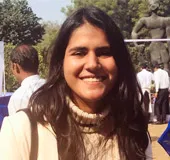-
CENTRES
Progammes & Centres
Location
Despite being removed from power, the PTI continues to be a large political threat to the PLM (N)-led ruling coalition in Pakistan

Image Source: Getty
Against the backdrop of India’s External Affairs Minister (EAM) S. Jaishankar’s visit to Pakistan for the 23rd meeting of the Shanghai Cooperation Organisation Council of Heads of Government on 15-16 October, a member of the Pakistan Tehreek-e-Insaf (PTI), Muhammad Ali Saifi stated that the Indian EAM should also participate in PTI's protest against the Pakistani government. The Pakistan Muslim League (N)-led government criticised the remarks for attempting to sabotage Pakistan’s bid to host the meeting and deemed it ‘anti-Pakistan’. Since coming to power in February 2024, the PML-N-led coalition government has been struggling on all fronts, and the PTI has been leveraging the government’s inability to handle the multiple crises in the country to augment its own position.
The Pakistan Muslim League (N)-led government criticised the remarks for attempting to sabotage Pakistan’s bid to host the meeting and deemed it ‘anti-Pakistan’.
The PTI has employed various strategies to garner public support against the current government. Since Imran Khan’s detention after being convicted in multiple cases last year, the party has become highly vocal against the army and the current government. The February 2024 elections were severely criticised because of rigging and manipulation allegations. A major setback for the party just before the election was the removal of its symbol. On 22 December 2023, just two months before the general elections in Pakistan, the Election Commission of Pakistan (ECP) omitted the PTI symbol—a cricket bat— on technical grounds, stating that the party had not held intra-party elections required by law. The ECP did not recognise the intra-party election held by the party in June 2023 on the grounds that it was not free and fair. The ECP also omitted the symbol of 13 other marginal political parties.
The PTI candidates were forced to compete in the election as independent candidates. However, the independents managed to win 93 seats, whereas the PML-N won 75 seats and Pakistan People's Party (PPP) came third with 54. Since none of the parties could cross the 133 mark to get a majority, PML-N and PPP along with the Pakistan Muslim League-Quaid (PML-Q), Muttahida Qaumi Movement (MQM-P), Balochistani Awami Party (BAP) formed a coalition government.
Despite having formed a government and effectively removing the PTI from power, the PML-N maintains its rivalry with the party.
Despite having formed a government and effectively removing the PTI from power, the PML-N maintains its rivalry with the party. The ongoing popularity of Imran Khan and the looming prospect of the PTI's resurgence continue to concern the ruling party.
Back in February when the PTI called for a protest against the manipulation of votes during the election, users reported problems when using the social media platform X (formerly known as Twitter). Citing national security concerns, the Pakistani government blocked X. In April 2024, the Ministry of Interior mentioned the shutdown of X and cited the failure of this social media platform to adhere to lawful directives given by the Government of Pakistan. It must be noted that PTI leaders and supporters of Imran Khan made significant use of X, after the country’s traditional media began censoring news related to his party. Activists challenging the ban claimed that it was done to quash the rising dissent after the 8 February general election which used illegal methods to rig the votes. It is considered “…the most brazenly rigged (election)…in Pakistan’s recent history despite global and social media scrutiny.”
In April 2024, the Ministry of Interior mentioned the shutdown of X and cited the failure of this social media platform to adhere to lawful directives given by the Government of Pakistan.
In the second week of July 2024, the PTI won a major legal victory as the Supreme Court declared it eligible for a share of seats reserved in national and provincial assemblies. It also affirmed that not having an election symbol does not affect its legal rights to field candidates. The PTI saw this as a major victory, but just hours after the verdict of the court, the PML-N government’s Information Minister Attaullah Tarar announced the government’s plan to ban the party, citing its role in violent protests last year as well as accusations of leaking classified information. The Minister also added that the government is planning to charge Imran Khan and two senior PTI leaders—Arif Alvi, the former president of Pakistan, and Qasim Suri, the former Deputy Speaker of the National Assembly—with treason. Apart from this, the government also planned to file a review appeal against the Court’s ruling that allowed PTI to get assembly seats reserved for women and members of religious minorities.
To curb the freedom to protest, the government introduced the Peaceful Assembly and Public Order bill in the Upper House on 2 September. Within a week it was made into a law, hastily completing all the required formalities. The law prescribes a punishment of up to three years or/and a fine to the members of an unlawful assembly in Islamabad. The law requires the event coordinator to take permission from the district magistrate at least seven days before the event and also empowers the government to designate a specific area of Islamabad as a ‘red zone’ or ‘high-security zone’ to prohibit all types of assemblies in that area.
The Opposition party members in both houses rejected the Public Order bill as they claimed it to be a ‘PTI-specific law’ which was brought just before PTI’s planned power show in Islamabad on 8 September. Nevertheless, the government allowed it under strict conditions. The jalsa was organised to mark one year since Imran Khan was arrested, and even as the PTI officially does not exist, the jalsa saw a massive presence of supporters and high-ranking PTI leaders. During the rally, reports of a police crackdown were noted and the situation escalated dramatically with PTI Interim Chairperson, Gohar Khan, and lawmakers Sher Afzal Khan Marwat and Shoaib Shaheen being quickly arrested.
The PTI is strongly condemning the government crackdown and arrests of its leaders after the Islamabad jalsa. The party has accused the government of imposing an “undeclared martial law” through the draconian Public Order Act, arresting at least 13 national leaders of the party, with many more in hiding. It regards this as the “tyranny of a fake majority.” Recently, the party vowed to continue its protest against the government after the mysterious disappearance of protest leader Ali Amin Gandapur, who is the Chief Minister of Khyber Pakhtunkhwa and was reported missing on the evening of 5 October.
The PTI is strongly condemning the government crackdown and arrests of its leaders after the Islamabad jalsa.
Earlier in July 2024, the party had also expressed strong opposition to the government’s ban on X in Pakistan. The decision which was taken under the pretext of national security has been met with major backlash from the party. The PTI called the ban unconstitutional and a ‘desperate move’ by the government, attempting to stifle political opposition and manipulate the narrative of the current political turmoil.
Despite facing significant challenges, the PTI continues to present a substantial threat to the ruling coalition government. Several factors are contributing to the persisting influence of the PTI in Pakistani politics.
First, the PTI, under the leadership of Imran Khan, has popular support from the masses of Pakistan. Even after Imran Khan was removed from the government, the PTI emerged as the largest party in the National Assembly during the subsequent elections and won a majority of the seats despite losing its party symbol. Their popularity is very high, particularly in Punjab, the largest province, where the PTI has historically performed well against PML-N. This popularity is not good for the weak coalition government. This weakness was especially seen when the PML-N announced its motive to ban the PTI. PPP, which is in alliance with the ruling government, distanced itself from the potential ban on PTI, insisting that its top leadership was not consulted on this.
Even after Imran Khan was removed from the government, the PTI emerged as the largest party in the National Assembly during the subsequent elections and won a majority of the seats despite losing its party symbol.
Second, the recent Supreme Court rulings that reinstated PTI’s eligibility for reserved parliamentary seats have improved the party’s position. The Supreme Court verdict allowed PTI to reclaim its status as a major political force, further weakening the current government’s efforts to marginalise its presence.
Third, the current government is tackling many grave issues in Pakistan. The economic challenges, allegations of corruption, and political problems in Balochistan and Khyber Pakhtunkhwa have fuelled public discontent. The government is focused on fulfilling the conditions necessary to sign an agreement with the International Monetary Fund. The government's first budget is tax-heavy and has increased taxes on salaried workers. Annual inflation reached an all-time high of around 38 percent in May 2023 when the current ruling government was still in power as an interim government, and as of June 2024, the inflation was 23 percent. PTI is capitalising on this dissatisfaction by positioning itself as a better alternative, capable of addressing these issues, presenting itself as a more stable governmental option with popular support.
In conclusion, the PTI remains a formidable threat to the current coalition government of Pakistan due to its strong grassroot support, strategic legal victories and the vulnerabilities of the ruling coalition. The several direct crackdowns by the government prove that the coalition still has a fear of a resurgence of PTI.
Abhishek Kumar is a Research Intern at the Observer Research Foundation
Shivam Shekhawat is a Junior Fellow at the Observer Research Foundation
The views expressed above belong to the author(s). ORF research and analyses now available on Telegram! Click here to access our curated content — blogs, longforms and interviews.

Abhishek Kumar is a Research Intern at the Observer Research Foundation ...
Read More +
Shivam Shekhawat is a Junior Fellow with ORF’s Strategic Studies Programme. Her research focuses primarily on India’s neighbourhood- particularly tracking the security, political and economic ...
Read More +